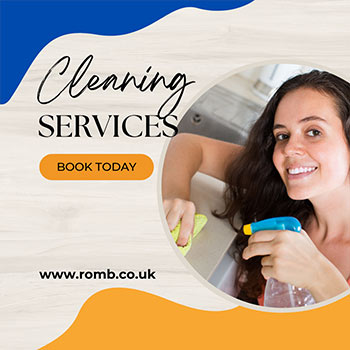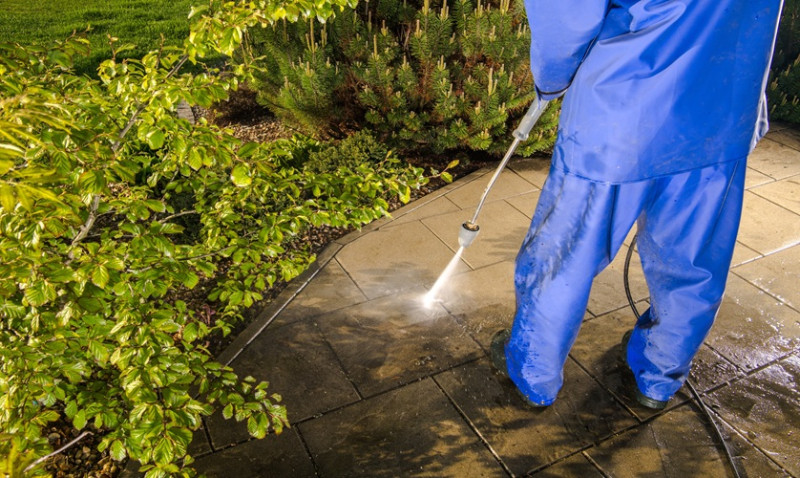
Thinking about launching your own cleaning business in the UK? You're not alone. With increasing demand from busy homeowners, landlords, letting agents, and even interior designers seeking reliable cleaners, there's never been a better time to jump into this lucrative industry. Whether you're a hands-on DIY enthusiast or a young professional seeking a profitable side hustle, starting your own cleaning business can be a practical and rewarding venture.
This guide is the first in a series designed to walk you through every step of starting and scaling your own cleaning operation—from initial planning through to acquiring your first clients. In STEP 1, we’re focusing on laying the foundations of your cleaning business, making sure you’re fully prepared for what's ahead.
Step 1: Research and Define Your Niche
Before you buy sponges and spray bottles, the first and most important move is to define exactly what type of cleaning service you want to offer. The cleaning industry is broad, and success often hinges on identifying a specialised niche to focus your efforts. Will you cater to domestic homes, landlords turning over rental properties, office spaces in need of regular maintenance, or newly built homes requiring post-construction cleans?
Take the time to understand the demand in your local area. For example, urban professionals in London and Manchester might need quick turnaround domestic services, while suburban or rural areas might see more demand for weekly full-house cleans. Tradesmen and interior designers may need deep-cleaning services following renovations or fittings. And then there’s commercial cleaning, end-of-tenancy cleans, or environmental/eco-friendly cleaning services—the options are vast.
Consider your skillset and background here too. If you're a DIY enthusiast, your knowledge of surfaces and materials can put you in a good position to work with clients who require specialist cleans. Designers and architects will appreciate someone who understands how to protect finishes like polished concrete, varnished timber, metal detailing or glass surfaces.
To stand out, become a specialist. Clients pay more for a cleaner who understands how to clean marble flooring or post-construction dust without damage. So your first big step: get clear on WHO you're serving and WHICH cleaning problems you're solving.
Assess Market Demand and Run the Numbers
Now that you’ve identified a potential niche, it’s time to validate that idea and ensure there's enough demand. Do some research online—look at Google Trends, browse local Facebook groups, and check local classified ads (like Gumtree or Nextdoor) to see what kind of cleaning services people are looking for in your area.
Also, do a competitive analysis. Check how many other cleaning services already exist nearby. What are they charging? What services do they offer? What does their branding look like? Use this information to identify gaps you can capitalise on. Perhaps other firms don’t offer high-end deep cleaning for property developers, or they skip eco-friendly supplies—this could be your edge.
Don’t forget to run some basic financial forecasts. How many jobs would you need to cover your monthly costs and earn a profit? Here’s a simple visual to help you estimate basic startup costs:
| Startup Item | Estimated Cost (£) |
|---|---|
| Cleaning supplies and equipment | £200 - £500 |
| Insurance (Public Liability) | £100 - £300/year |
| Branding & marketing materials | £150 - £400 |
| Website & domain | £50 - £200 |
| Transport & fuel | Variable |
| Total Estimated Cost | £500 - £1,400 |
These numbers may vary depending on your location and setup, but having this rough figure will help you set realistic goals and timelines.
Decide on Your Business Structure
Next, you’ll need to decide how you’re going to operate your business legally. In the UK, most small cleaning businesses start out as sole traders because it's straightforward, cost-effective and easy to set up. However, as your business grows, you might consider becoming a limited company for better tax efficiency and legal protection.
You can register as a sole trader for free through HMRC’s website. All you need is your National Insurance number, contact information, and a business name. Make sure you're aware of your responsibilities, like submitting a Self Assessment tax return and paying National Insurance contributions.
If you decide to go for a limited company structure instead, you'll need to register through Companies House and manage a few more responsibilities like filing annual accounts and corporation tax returns. While it's a bit more complex, it adds credibility to your business, which might appeal more to commercial clients or design professionals looking to hire experienced, professional services.
Whatever structure you choose, set up a separate business bank account early on. It simplifies accounting and helps you keep personal and business finances distinct from day one.
Get the Necessary Insurance and Licences
Insurance might not be as exciting as buying your first vacuum, but it’s absolutely critical. At a minimum, every cleaning business operating in the UK should have Public Liability Insurance. This protects you in case of accidental damage (say you scratch a designer’s gloss-finish kitchen cabinet) or injury while on a job.
If you're hiring staff—even casually or part-time—you’re also legally required to take out Employers’ Liability Insurance. Other insurance cover worth considering includes Tool and Equipment Insurance (for the inevitable gear you’ll rely on) and Professional Indemnity Insurance, particularly if you're offering any kind of advice or specialist service.
Luckily, there are a growing number of providers offering flexible cleaning business insurance packages tailored to sole traders and small teams in the UK. Look for reputable names like Simply Business, AXA or Hiscox, who offer tailored cover at competitive pricing.
In most cases, you don’t need a specific licence to operate a cleaning business in the UK. However, if you’ll be disposing of significant waste, such as during builders cleans or commercial jobs, you might need a waste carrier licence from the Environment Agency.
Taking the time to get covered properly shows your clients—especially professionals like landlords, agents or architects—that you take your business seriously, and increases your chances of securing higher-value contracts.
Lay the Foundations for Branding and Marketing
Even at this early stage, it’s worthwhile thinking about your brand identity. Good branding helps clients remember you, and positions you professionally. Decide on a business name that’s catchy, easy to remember, and reflects both your values and the services you offer. Check online that your desired domain name is available and that no one else in your area is using it.
You'll also want a strong visual identity. A smart, clean logo, consistent colour scheme, and a trustworthy tone of voice are important. Don’t underestimate the power of first impressions—whether it’s a flyer handed out at a tradeshow or the homepage of your website, consistent and professional branding will help your business stand out.
Begin with the basics: create a simple website, register with Google Business, and set up your social media profiles. Platforms like Instagram and Facebook are excellent for showcasing before-and-after photos and building community presence, especially in local groups where homeowners and tradesmen look for trusted service providers.
Later, you can enhance your marketing with client testimonials, partnerships with local designers or showrooms, and even a referral programme. But the seed starts here—with clear thinking about who your brand is and what value it brings to your clients.
Final Thoughts on Getting Started
Starting your own cleaning business is completely within reach, but it depends on a solid foundation. By defining your niche, doing your research, choosing the right business structure, protecting yourself with the right insurance, and beginning branding efforts early—you're off to a strong start.
Remember, starting out might take a bit of hustle. You may clean the first ten houses yourself or drive across town for your first commercial gig. But each job builds your experience, portfolio, and reputation. With each client, word-of-mouth spreads, especially among tradespeople, designers and busy professionals looking for hardworking and trustworthy service providers.
Stay tuned for STEP 2 of our guide, where we’ll cover how to source your gear and tools, set your pricing, and develop service packages designed to scale.
Have any questions about starting your cleaning business in the UK? Drop a comment or reach out—we're always happy to help new professionals get off the ground!







